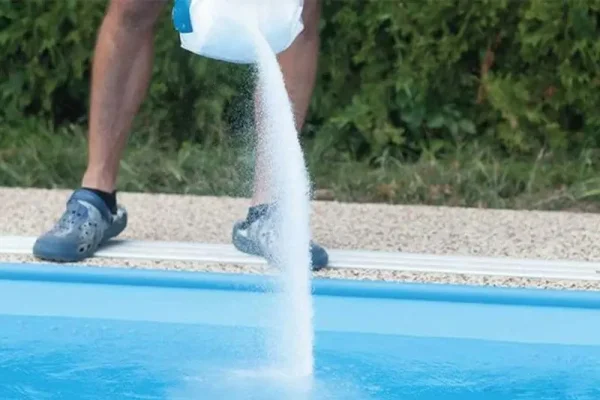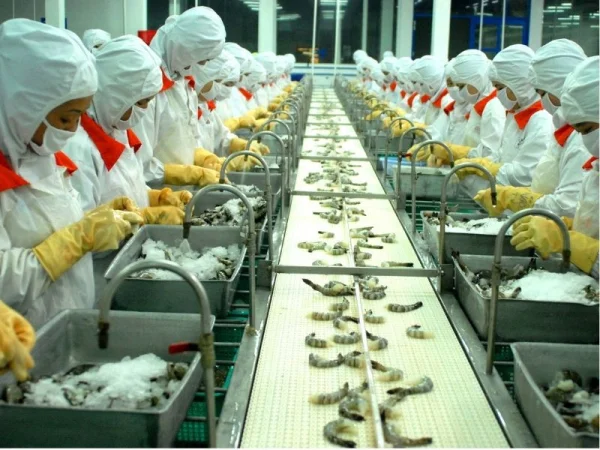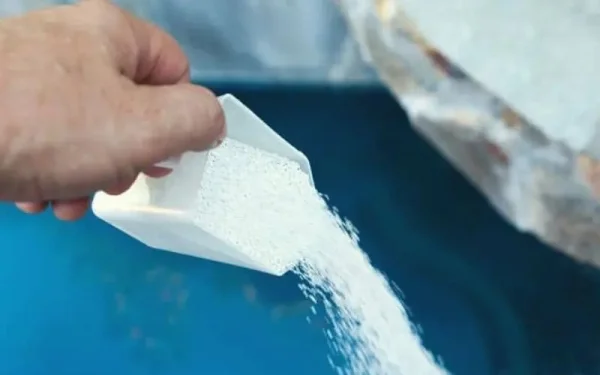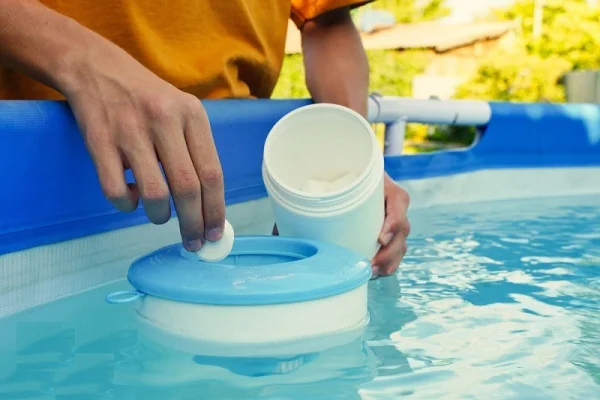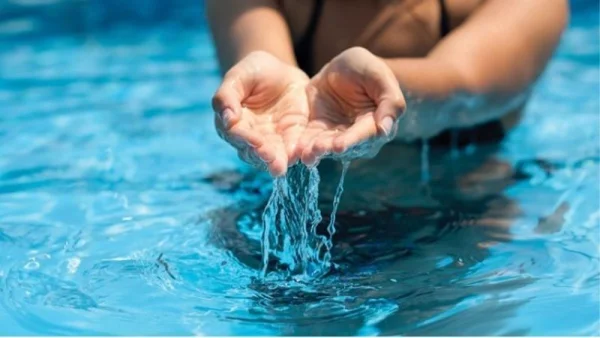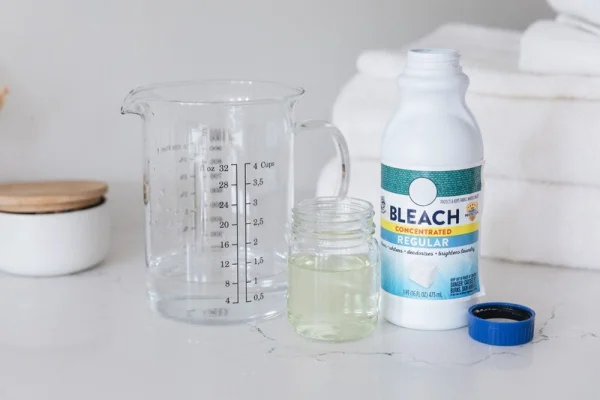
Chlorine is a powerful chemical with strong oxidizing and disinfecting properties. It is widely used for the treatment and disinfection of water and wastewater. Chlorine is also known by other names such as " Chlorine 70 ", "chlorine powder", and "calcium hypochlorite", and has the chemical formula Ca(ClO)2.
As a highly effective disinfectant, the proper usage of chlorine is essential for ensuring the safety and quality of water resources. By equipping water treatment professionals with this knowledge, we can harness the full potential of chlorine to safeguard public health and the environment.
Applications of Chlorine 70
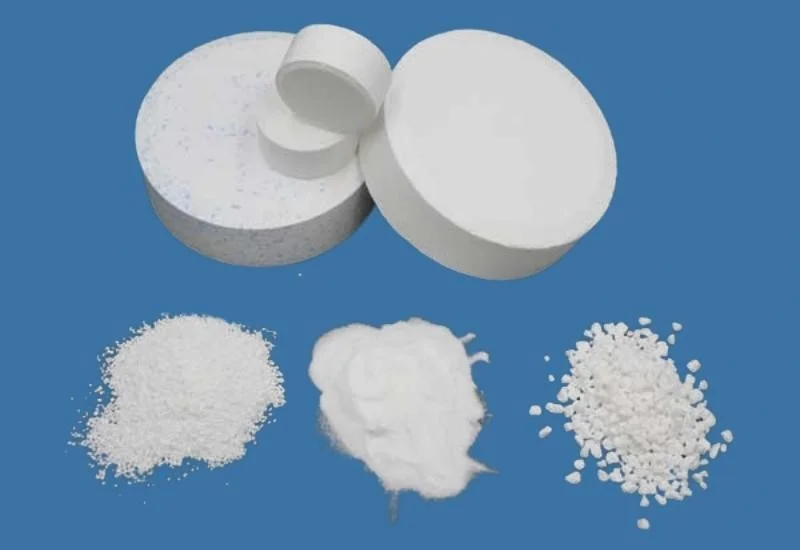
Applications of Chlorine 70
Chlorine's remarkable disinfecting and oxidizing properties make it a vital chemical for a wide range of industries and applications. Let's explore the key areas where chlorine 70 is extensively utilized:
Water Treatment
As a primary disinfectant, chlorine 70 plays a crucial role in treating drinking water, swimming pool water, and industrial/municipal wastewater. Its ability to effectively kill bacteria, viruses, and other microorganisms is essential for ensuring the safety and purity of water supplies. Chlorine-based treatments help prevent the proliferation of harmful microbes in water sources.
Surface Cleaning and Odor Removal
Chlorine-based products are widely employed as cleaning and disinfecting agents for surfaces, equipment, and facilities. These products help remove odors and eliminate dangerous microbes, maintaining hygiene and sanitation in various settings.
Chlorine 70's Role in Sanitization and Odor Control
In the medical and healthcare sectors, chlorine 70 are used to disinfect wounds, sterilize medical instruments, and sanitize hospital environments. The potent disinfecting properties of chlorine are crucial for preventing the spread of infections and maintaining a sterile, pathogen-free environment.
Chemical Industry
Chlorine 70 finds extensive use in the production of a diverse range of chemical products, including paints, solvents, foaming agents, pesticides, and anti-coagulants. The chemical industry relies on chlorine's versatile properties to facilitate various manufacturing processes.
Food and Beverage Processing
Chlorine-based treatments are integral to the food and beverage industry, where it is used to purify water, clean equipment, and disinfect surfaces. This helps ensure the safety and quality of food and drink products by eliminating harmful microorganisms.
Livestock and Aquaculture
In the agricultural sector, chlorine 70 is employed to disinfect and prevent the spread of diseases in livestock farms and aquaculture facilities. Its ability to eliminate pathogens is essential for maintaining the health and well-being of animals.
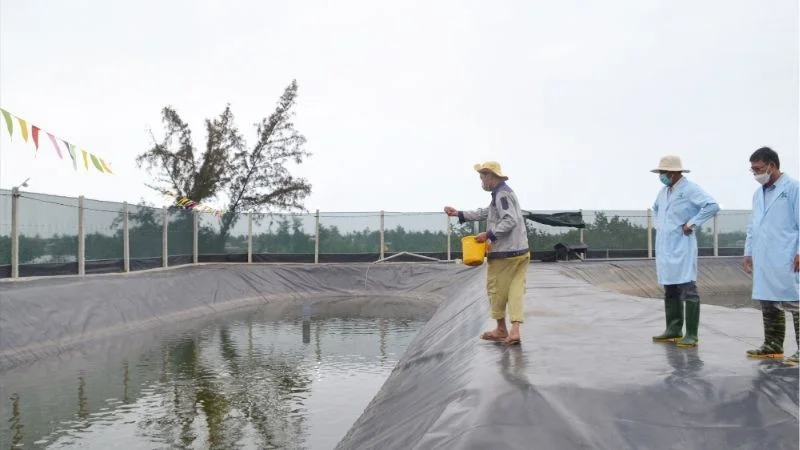
Chlorine 70 use in aquaculture
Chlorine 70 Use in Emergency Situations
Chlorine-based disinfection treatments are crucial in the aftermath of natural disasters, floods, and in areas near waste disposal sites. These treatments help purify contaminated water sources, making them safe for human consumption and use.
Recommended Chlorine 70 Concentrations for Wastewater Disinfection
The effective disinfection of wastewater is crucial for protecting public health and the environment. To ensure the proper use of chlorine 70 for wastewater treatment, regulatory bodies have established specific guidelines for the required active chlorine concentrations.
According to the Vietnamese National Technical Regulation on Water Quality (TCVN 7957-BXD), the recommended active chlorine concentrations for different stages of wastewater treatment are as follows:
For Wastewater After Mechanical Treatment:
- Active Chlorine Concentration: 10 mg/L (10 ppm or 0.001%)
This higher chlorine concentration is necessary for wastewater that has only undergone mechanical treatment, as it likely still contains a higher load of pathogens and organic matter that require more intensive disinfection.
For Wastewater After Complete Biological Treatment:
- Active Chlorine Concentration: 3 mg/L (3 ppm or 0.0003%)
Wastewater that has undergone full biological treatment typically has a lower organic load and reduced pathogen levels. As a result, a lower chlorine concentration of 3 mg/L is deemed sufficient for effective disinfection.
For Wastewater After Incomplete Biological Treatment:
- Active Chlorine Concentration: 5 mg/L (5 ppm or 0.0005%)
In cases where the biological treatment process is not fully complete, the wastewater may still contain a higher level of contaminants. The recommended chlorine concentration is therefore set at 5 mg/L, striking a balance between the higher and lower requirements.
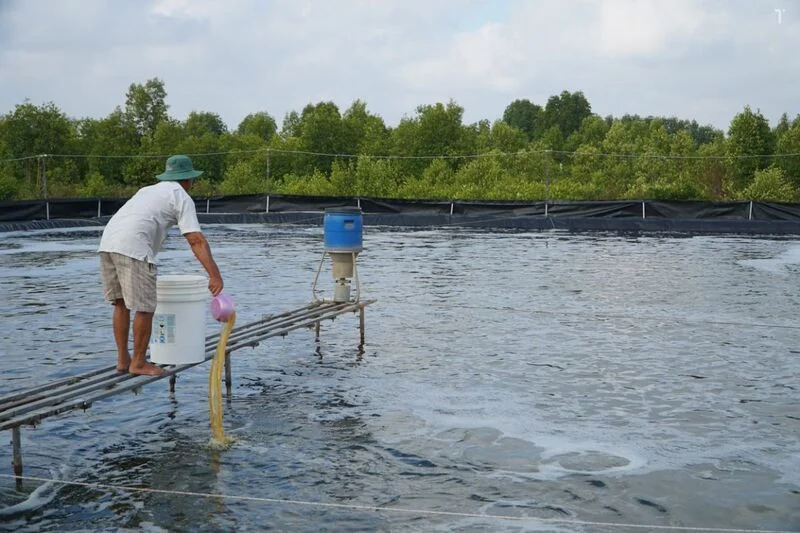
Chlorine use in Wastewater Treatment
Preparing Chlorine 70 for Wastewater Disinfection
The process of preparing chlorine solutions for wastewater disinfection is relatively straightforward. You can use the following formula to determine the exact amount of chlorine-containing chemicals needed:
m = (C1 × V1 / C2) × 1000
Where:
- m: Mass of chlorine-containing chemical required (g)
- C1: Desired chlorine concentration in the solution (%)
- V1: Volume of solution to be prepared (L)
- C2: Chlorine concentration in the original chemical (e.g., 70% for Chlorine 70 )
Example:
To prepare 10 liters of a 0.5% active chlorine solution using 70% calcium hypochlorite ( Chlorine 70 ):
m = (0.5 × 10 / 70) × 1000 = 72 grams
Therefore, you would need to dissolve 72 grams of Chlorine 70 powder in 10 liters of clean water to obtain a 0.5% (5,000 ppm) active chlorine solution.
Safety Precautions when Using Chlorine 70
Chlorine plays a crucial role in the purification and treatment of drinking water, swimming pool water, and industrial/municipal wastewater. To ensure the safe and effective use of chlorine 70, it is crucial to follow these guidelines:
Before Use
- Wear appropriate personal protective equipment (PPE) such as goggles, masks, gloves, and protective clothing when handling chlorine.
- Avoid using chlorine powder in windy conditions to prevent inhalation.
- If chlorine comes into contact with skin or eyes, immediately rinse with clean water.
- Seek medical attention if experiencing symptoms like coughing, chest pain, or headaches after chlorine exposure.
During Use
- Avoid using chlorine 70 under direct sunlight, as it can reduce the disinfecting effectiveness.
- Use the recommended dosage; excessive chlorine can be harmful to health and the environment.
- If the chlorine concentration is too high, use an oxidizing agent to neutralize the excess.
Storage and Disposal
- Store chlorine in a dry, well-ventilated area, away from direct sunlight and other incompatible chemicals.
- Ensure that chlorine products are inaccessible to children.
- Dispose of chlorine-containing waste according to local regulations and environmental guidelines.
Sourcing Chlorine 70 for Wastewater Disinfection
Obtaining high-quality chlorine products for wastewater treatment in Vietnam is relatively straightforward. Customers can easily purchase various chlorine-based disinfectants, including Chlorine 70, from reputable suppliers like Dong A Chemicals.
Dong A Chemicals:
- Hotline: (+84) 985797941
- Email: export@dongachem.vn
- Website: dongachem.com
- Address: Khu 9, Phong Chau town, Phu Ninh district, Phu Tho, Viet Nam
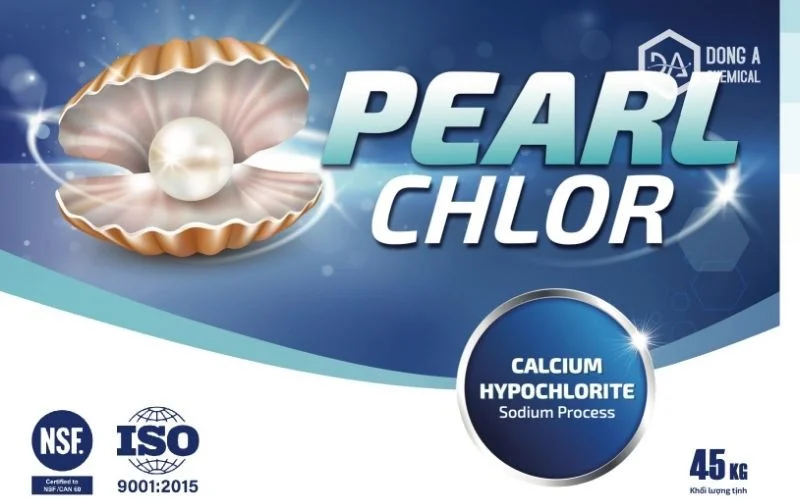
Chlorine 70 from Dong A Chemicals
By understanding the proper chlorine concentrations, preparation methods, and safety measures, water and wastewater treatment operators can effectively harness the powerful disinfecting properties of chlorine to ensure the safety and quality of water resources. Whether for drinking water, swimming pools, or industrial/municipal wastewater, chlorine 70 remains a crucial component in the pursuit of comprehensive water treatment and public health protection.
Related Articles
Effective Ways to Neutralize Chlorine in Water
Chlorine is a chemical element belonging to the Halogen group, and it has widespread applications in ...
Is It Safe To Use Chlorine in the Food Industry?
Chlorine is a highly versatile chemical that plays a crucial role in various industries, including ...
The Ultimate Guide to Chlorine Powder for Pool Water Treatment
Maintaining a clean pool is crucial for the health and enjoyment of swimmers. One of the most ...
8 Key Uses of Chlorine Tablets
Chlorine tablets are a widely used chemical in various industries, particularly in the field of ...
How to Effectively Chlorinate Your Pool
Maintaining a clean and safe swimming pool is crucial for ensuring a refreshing and enjoyable ...
Difference Between Chlorine and Bleach Chemicals
Chlorine and Bleach are powerful oxidizing agents with similar applications in disinfection, ...

